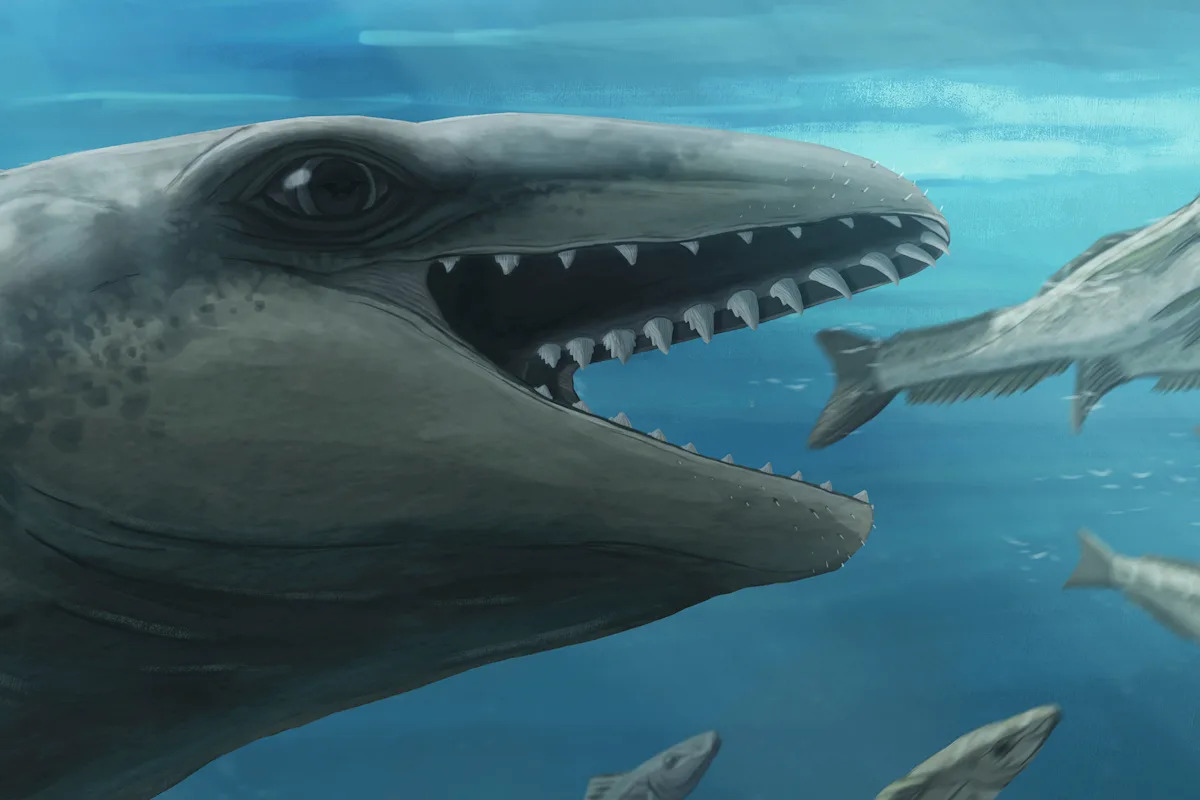A remarkable discovery of a **25 million-year-old** fossil on an Australian beach has led paleontologists to identify a new species, providing insights into the evolution of whales. This newly named species, **Janjucetus dullardi**, has distinctive features, including bulging eyes the size of tennis balls and a formidable jaw with razor-like teeth. Researchers announced the finding this week in the *Zoological Journal of the Linnean Society*, marking a significant advancement in understanding early whale evolution.
The fossil was unearthed in **2019** at **Jan Juc Beach**, located in the state of Victoria, an area well-known for its rich fossil deposits. According to **Erich Fitzgerald**, senior curator of vertebrate paleontology at **Museums Victoria Research Institute** and a co-author of the study, this beach has become a critical site for examining the origins of whales. The discovery of a partial skull, including ear bones and teeth, represents a rare glimpse into a unique branch of the whale family tree.
Insights into Whale Evolution
**Janjucetus dullardi** is only the fourth species identified within a group known as mammalodontids. These early whales lived during the **Oligocene Epoch**, approximately **34 to 23 million years ago**, a period that is crucial for understanding the evolutionary history of cetaceans. The newly identified species likely reached lengths of up to **3 meters (10 feet)** and exhibited a predatory nature, unlike the gentle giants we associate with modern whales today.
Fitzgerald described the creature as “deceptively cute,” noting that it resembled a hybrid of a whale, seal, and even a character from a video game. He explained that these ancient whales likely had small, stumpy legs, further differentiating them from today’s species.
The research team emphasizes that while the appearance of these creatures may remain somewhat of a mystery without more complete specimens, this discovery is invaluable. The partial skull that led to the identification was an extraordinary find, given the rarity of well-preserved cetacean fossils.
A Passionate Discovery
The fossil was discovered by **Ross Dullard**, an amateur fossil hunter and school principal, who stumbled upon it during a routine low-tide search at Jan Juc Beach. Dullard noticed something unusual protruding from a cliff and, upon further investigation, dislodged a tooth. Recognizing its significance, he shared photographs with Museums Victoria. Fitzgerald quickly suspected that the find represented a new species.
Dullard expressed immense joy at the recognition of his discovery, stating, “It’s literally been the greatest **24 hours** of my life.” The excitement surrounding the announcement has been palpable, with Dullard receiving high-fives from colleagues and friends.
Ancient whale fossils, while rare, provide critical insights into the evolution, behavior, and adaptations of these species. Fitzgerald noted that finds like **Janjucetus dullardi** can help researchers understand how ancient cetaceans thrived in warmer oceans, contributing to knowledge that may inform contemporary marine biology, especially as scientists study the effects of climate change on marine life.
As a celebration of his incredible find, Dullard plans to host a fossil-themed party, complete with games and treats shaped like whales. Reflecting on his long journey to this moment, he said, “I’ve had sleepless nights. I’ve dreamt about this whale.”







































































